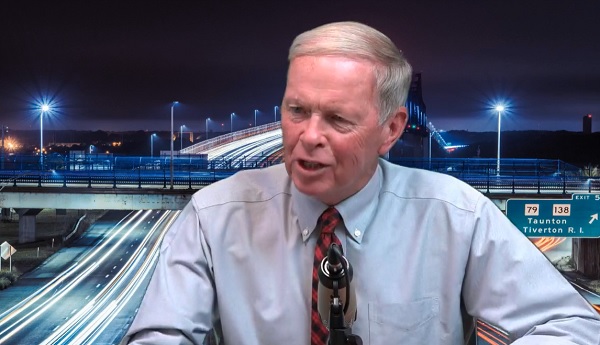Community
Lawrence and Fall River mayors among those pushing for better, more affordable public transportation service in Massachusetts

BOSTON, MA – Today, municipal leaders from cities and towns across the state’s Regional Transit Authority service areas, including Gateway Cities, sent a letter to the members of the Senate Ways and Means Committee, asking them to pass An Act to Improve and Expand Regional Transit Accessibility in the Commonwealth (S.2277), filed by State Senator Harriette Chandler and Representative Natalie Blais. The bill, which was reported out favorably by the Joint Committee on Transportation in February, would stabilize funding for RTAs and pave the way for better, more affordable public transportation service in Massachusetts. Passage of the bill would also mark a critical step towards achieving greater regional equity in the allocation of state public transportation dollars.
“As municipal leaders, we represent a wide variety of cities and towns. Our communities are different in many ways, from population to geography and demographics. But we share a commitment to improving regional public transportation options – both to improve the lives of our constituents and to help meet the state’s climate change goals,” said Mayor Brian De Peña of Lawrence.
“All Massachusetts residents deserve access to high quality public transportation services,” said Mayor Coogan of Fall River. “Residents of our communities rely on transit services to access jobs, schools, grocery stores, and medical appointments. It is crucial to provide a system that meets these core needs.”
The Commonwealth’s 15 RTAs and the Massachusetts Bay Transportation Authority (MBTA) are the backbone of the state’s public transportation system. Though 55% of Massachusetts residents live in an RTA service area, less than 7% of state transit operational funds go to support the RTAs.
“We cannot allow the status quo for transportation in Massachusetts to stand any longer,” said State Senator Harriette Chandler of Worcester. “Our constituents are overwhelmed by record inflation, skyrocketing gas prices, a global pandemic, wealth disparities, and climate change. We need policies in place that will efficiently and equitably support our communities in managing the effects of these crises.”
“The transportation sector is the number one emitter of greenhouse gasses in our state,” said Alexis Walls, Assistant Campaign Director for the Massachusetts Public Health Association. “We need to make major investments in public transportation, including stable funding for RTAs, in order to reduce the number of cars on the road and achieve our climate goals. Passage of this bill would help agencies to plan for the future, implement sustainable service improvements, and invest in electric buses and other critical infrastructure.”
RTAs connect riders in over 250 cities and towns beyond the reach of the MBTA with access to essential resources that shape health, such as jobs, health care, food and education. These services are especially critical for low-income families, older adults, and people with disabilities, who disproportionately rely on transit services to carry out day-to-day activities. However, many residents of RTA communities are unable to access reliable regional transit due to underinvestment.
Excerpts from the letter include:
“The RTAs in many communities are unable to offer service 7 days a week and have limited daytime hours. Buses are infrequent and routes are limited, which make it inconvenient for residents to rely upon transit to complete day-to-day activities. Our constituents are also missing connections between service areas, which limits travel to neighboring cities and towns for opportunities like work and school.”
“Inequities in regional transit affect the well-being of the state as a whole. Without the advancement of the state’s regional transportation system, we will not succeed in bolstering the state economy, recovering from the COVID-19 pandemic, or meeting the Commonwealth’s climate goals. The legislature must invest in RTAs to give the majority of people in the state meaningful options to get where they need to go outside of polluting passenger vehicles, which come at a steep financial and environmental cost.”
The Massachusetts Public Health Association (MPHA) is a nonprofit organization that promotes a healthy Massachusetts through advocacy, community organizing, and coalition building. We are leaders in the movement to create health equity by addressing the root causes of health and wellness. We promote policies that impact the major drivers of health outcomes, such as access to healthy food, safe affordable housing, and transportation. We also advocate for equitable public health services throughout the Commonwealth. To learn more, visit www.mapublichealth.org. ###






You must be logged in to post a comment Login